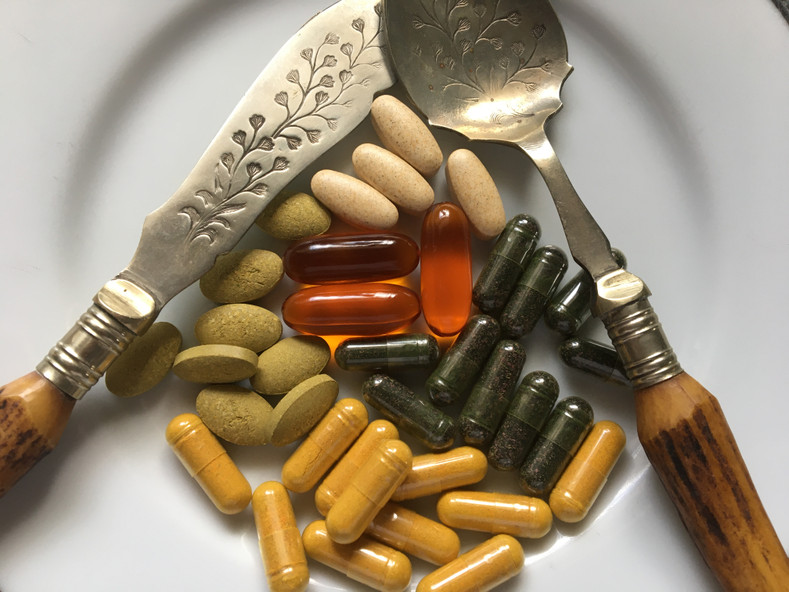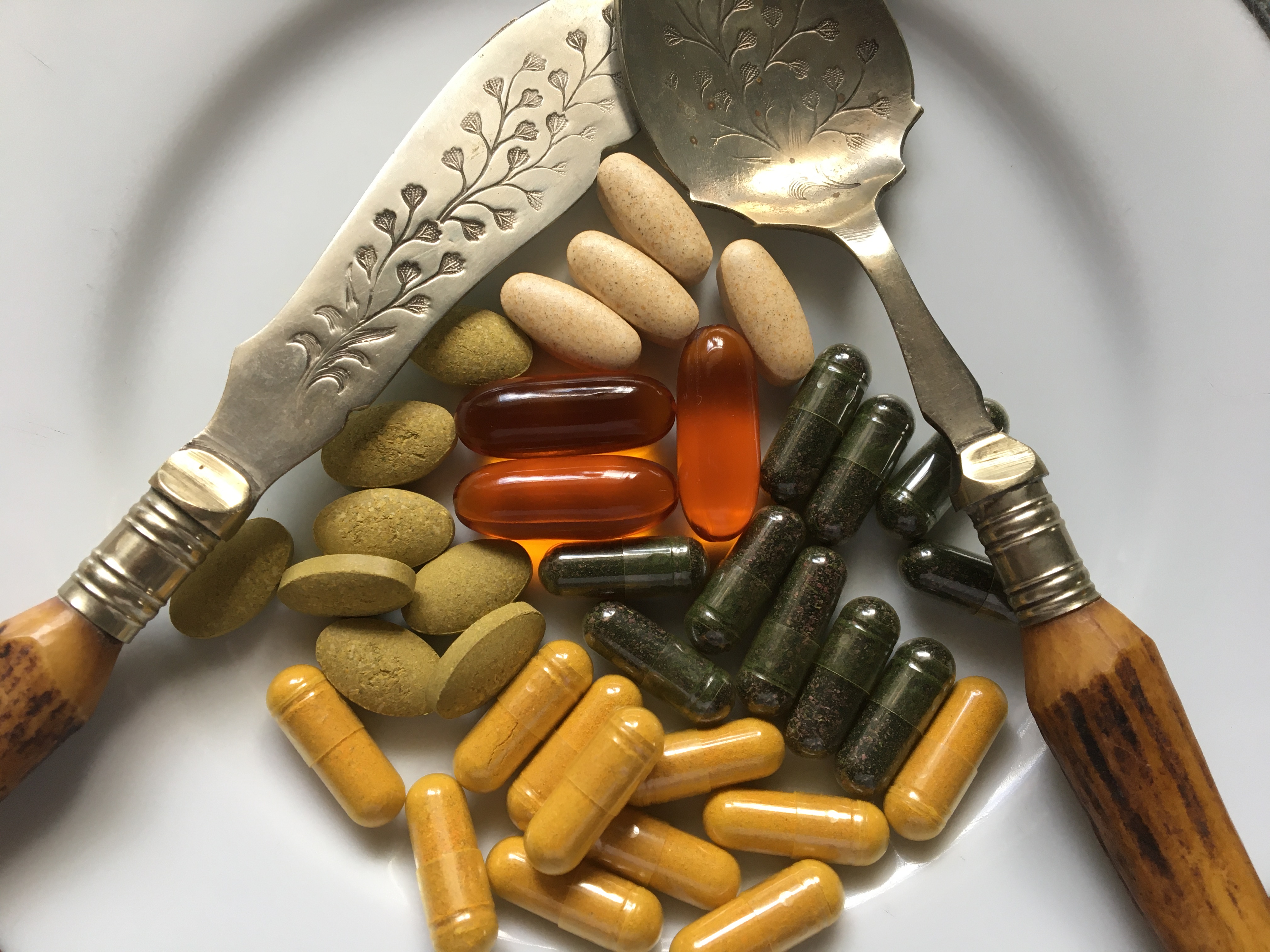NUTRITIONAL SUPPLEMENTS: How to Choose

 There is a great deal of conflicting opinion about
nutritional supplements—are they useful, or not worth your money? Here’s some typical questions:
There is a great deal of conflicting opinion about
nutritional supplements—are they useful, or not worth your money? Here’s some typical questions:
- Are supplements safe?
- What companies are best to buy from?
- How do I know if I need a supplement?
- If I have a health condition, can supplements help?
- Can’t I get what I need from my food?
Sales of nutritional and dietary supplements are now an enormous economic driver; 2018 sales were 42.6 billion U.S. dollars —the largest sales volume in the history of the supplement industry—and it appears that 2019 sales have topped that! American consumers buy over-the-counter multiple vitamin-mineral formulas, herbal preparations, weight loss aids, whole foods blends in powders, capsules, liquids and tablets, super-food juices, and various other non-prescription items promoted to get you well or keep you well.
Supplement Safety
The majority of supplements are safe, but there are always a few fly-by-night companies that are just trying to make a quick buck using inferior ingredients. It’s best to go with an established company, or a newer company that presents a history and credentials you can trust. The more disclosure and transparency around ingredients testing, manufacturing, quality control practices and satisfaction guarantees, the better. This may require a little “homework”, but it’ll pay off in the long run. After looking at several companies and sellers, you’ll begin to distinguish between hollow marketing claims and honest, straightforward information about the products. Remember: if the company claims to cure all of your ills, and the product sounds too good to be true, it likely is!
Can’t I get what I need from food?

The most highly farmed areas of North America have topsoil that is dangerously depleted in nutrients, especially
trace minerals and beneficial soil organisms. In the big business of farming, often the soil is being enriched with only the chemical nutrients necessary to produce a large volume of crops, but the quality & nutrient density in the food
is sacrificed. So…if the nutrients aren’t in the soil, they won’t be in the food!
Here’s a good example: Your thyroid gland needs the element iodine to produce thyroid hormones, but if there’s none in the soil—or therefore your food—then your thyroid may become more and more underactive. (By the way, underactive (hypo) thyroid disease is quite literally an epidemic in many areas of North America, usually the same areas having little or no iodine in the soil.)
Supplementing your diet with a food source of iodine—from a company you can trust—is a safe and effective solution.
There are many soil deficiencies that can result in health problems. Now, you probably don’t need supplements if you grow all your own organic food, fortify the soil with nutrient-dense compost & fertilizer, and then harvest your crops at the peak of maturity (ripeness). If you don't do these things, you’ll probably benefit from supplementation!
But what are the best supplements?
When considering minerals like calcium, magnesium, potassium, iron, etc., it’s important to get whole food sources. This means that minerals and other nutrients have been obtained from living ingredients, instead of inorganic rock or industrial chemicals. As an example, the calcium in a carrot has been converted from the inorganic form in the soil to a living compound in the plant. This process takes place as the carrot grows, and through its root hairs, the rock form of calcium is built into the living structure of the carrot plant. It is this transformation from soil (mineral kingdom) to plant (vegetable kingdom) that makes the calcium in a carrot far superior for humans and other animals. Simply put, we are absolutely dependent upon plants to transform the soil into food for us. (Otherwise we wouldn’t need to go to the grocery store—we could just go outside and scoop up handfuls of dirt for dinner!)
Some calcium pills are made from mined, finely ground rocks, such as limestone or chalk (calcium carbonate), and dolomite (calcium-magnesium carbonate). These supplements are inexpensive sources of calcium, but cheap isn’t a bargain if it doesn’t work! The human body isn’t designed to absorb rock forms of minerals; we need living sources. So look for supplements that are plant-source, herbal or whole-food formulas. Expect to pay a little more for quality---you'll get better results!
For many years nutritional supplement producers couldn’t legally say what their product was for, or what results you might expect. Then, in 1994 an act was passed that allows companies to use “structure/function” wording, such as, “the spice turmeric can relieve inflammation”. This is very helpful for the consumer—as long as the claim is accurate, and the ingredients are high-quality.
Dietary supplements using specific structure/function wording can be “condition-specific”, meaning the label tells you clearly what the product is for. A multiple vitamin-mineral product can say “For Women over 50”, or “For Teens” on the label; or an herbal formula might be named “Sleep All-Nite”.
Know the company you buy from!
Finally, here’s one of the most important factors in finding and using quality supplements that work: get to know the company! The best companies and suppliers have integrity; are genuinely interested in supporting your health; will provide you with accurate, useful information; and are in business ‘for the long-haul’.


